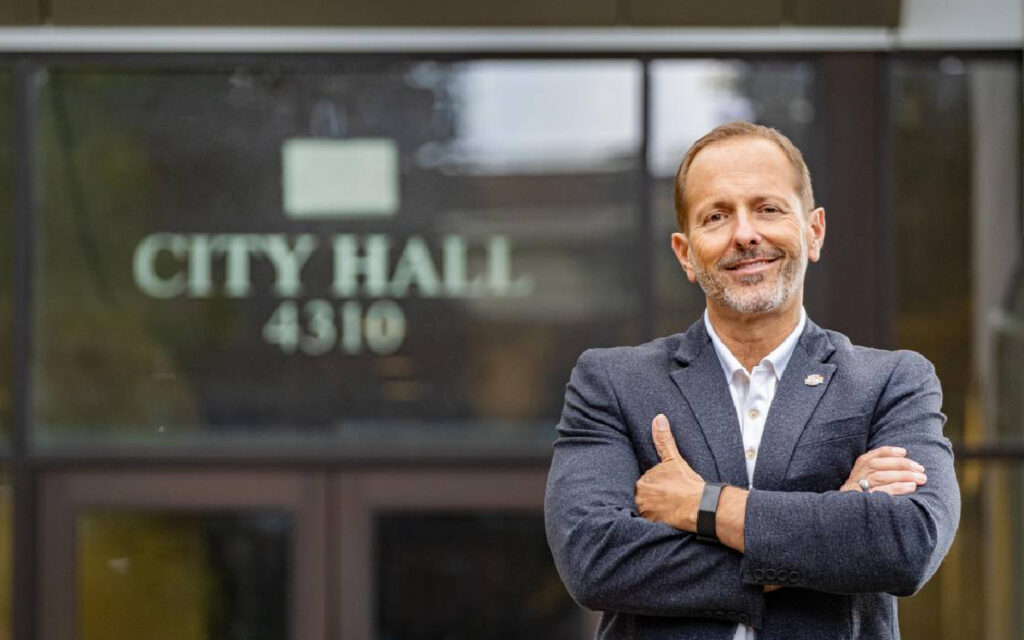
The budget reflects the priorities of Mayor Jim Diodati, who is required to formally present a budget plan to council under Ontario’s strong mayor legislation no later than Feb. 1. Photo Credit: City of Niagara Falls.
Niagara Falls city staff are recommending a 3.5 per cent property tax increase for the 2024 tax year. Councillors will deliberate on the proposal beginning this week.
The budget reflects the priorities of Mayor Jim Diodati, who is required to formally present a budget plan to council under Ontario’s strong mayor legislation no later than Feb. 1.
This is the first budget introduced by Diodati since the province gave the mayors of all Ontario municipalities with populations of over 100,000 residents strong mayor powers last year.
Diodati’s plan would see Niagara Falls increase spending in fiscal year 2024 by roughly $10 million over 2023 levels. Total spending is expected to reach $151.5 million.
The budget relies on $14 million in revenue from casino operations, $84.8 million in revenue from general taxation on residents (including property taxes), and $4.8 million in user fees. The remaining $43 million comes from various sources, including internal transfers, investments, and grants from the province and the federal government.
The biggest expense increases comes from labour compensation, which is up by 5.4 per cent, and employee benefits, which is up by 7.3 per cent.
The executive summary of the budget notes that its proposed property tax increase of 3.5 per cent comes in below the rate of inflation.
The average price of a home in Niagara Falls is roughly $700,000. In 2023, an owner of that average home would have been on the hook for $3,996 to the city of Niagara Falls. Under Diodati’s proposal, that bill would increase to $4,135.
Property taxes going to the city of Niagara Falls accounts for roughly 38 per cent of the property taxes being paid by the average Niagara Falls homeowner. The remaining 62 per cent goes to Niagara Region, as well as local education, transit, and waste management costs.
Niagara Region passed a budget earlier this year that increases the regional portion of a Niagara Falls homeowner’s property tax bill by 7.02 per cent.
Diodati is blaming a higher property tax bill in part on costs that were delayed during the pandemic. He also plans to defer other cost items to future tax years to keep the property tax increase at 3.5 per cent. Had Diodati not done so, city staff estimate that the property tax increase would have been as high as 5.5 per cent.
The budget being presented to council is the city’s operating budget for 2024. The city’s capital budget was already presented to council and approved last November. The capital budget amounts to $66.7 million.
Council will now have the opportunity to deliberate on Diodati’s budget proposal. However, Diodati’s new strong mayor powers allow him to veto any amendments proposed by council and the only way council can override that veto is through the support of two-thirds of the members of council.
Diodati’s budget will formally be presented to council today.

Jay Goldberg is the Ontario Director at the Canadian Taxpayers Federation. He previously served as a policy fellow at the Munk School of Public Policy and Global Affairs. Jay holds a Ph.D. in Political Science from the University of Toronto.




















